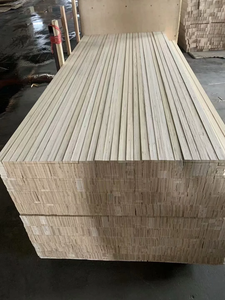Understanding Cons of Engineered Hardwood
Engineered hardwood flooring is a popular choice among homeowners and businesses alike for its aesthetic appeal and durability. However, as with any flooring material, there are certain disadvantages that should be considered before making a purchase. In this section, we will delve into the key cons of engineered hardwood, ensuring you have all the necessary information to make an informed decision.
Types of Cons Related to Engineered Hardwood
When we discuss the cons of engineered hardwood, several types emerge, each affecting its performance and longevity. Here are the primary types of drawbacks to consider:
- Moisture Sensitivity:
- Even though engineered hardwood is more resistant to moisture than solid hardwood, it can still undergo warping and damage if exposed to excessive water for prolonged periods.
- In areas with high humidity or frequent spills, it may not hold up as well as other flooring options.
- Limited Refinishing:
- Most engineered hardwood floors cannot be sanded and refinished as often as solid hardwood due to their thinner top veneer layer.
- This limitation can shorten the overall lifespan of the flooring, particularly in high-traffic areas.
- Potential for Color Fading:
- Over time, exposure to sunlight can cause engineered hardwood to fade, which may alter the appearance of your flooring.
- Using rugs and blinds can mitigate this issue but requires proactive care and maintenance.
- Installation Limitations:
- While many engineered hardwood products are designed for DIY installation, some require professional assistance, thus adding to the cost.
- Improper installation can lead to shifting or gaps, further affecting the aesthetic and longevity of the flooring.
Application Scenarios for Engineered Hardwood
Understanding where engineered hardwood can be most effectively applied helps in assessing its cons relative to your specific needs. Here are some scenarios wherein the cons of engineered hardwood become apparent:
- Basements:
- Due to moisture accumulation, using engineered hardwood in basements can lead to significant issues, including warping and a reduced lifespan.
- High-Traffic Commercial Spaces:
- In busy commercial environments, the limited refinishing ability can be a serious drawback, as wear and tear become more evident.
- Outdoor Areas:
- Engineered hardwood is not suitable for outdoor applications due to its susceptibility to weather conditions and moisture.
Managing the Cons of Engineered Hardwood
While there are clear cons associated with engineered hardwood, managing these drawbacks can help you maximize its benefits. Here are some effective strategies:
- Environment Control:
- Consider using dehumidifiers in high humidity climates to prevent moisture damage.
- Maintain a stable indoor climate to help preserve the integrity of your flooring.
- Regular Maintenance:
- Committing to regular cleaning, along with occasional refinishing (if applicable), can greatly extend your flooring’s lifespan.
- Using protectors under heavy furniture can reduce the risk of scratches and dents.
- Professional Installation:
- Hire qualified professionals for installation to ensure proper fitting and minimize the risk of issues arising from incorrect installation.






















































